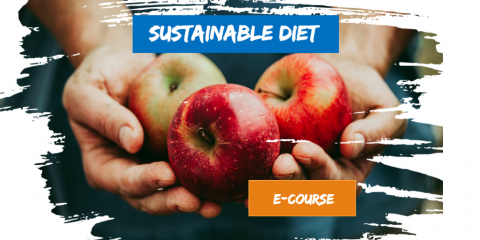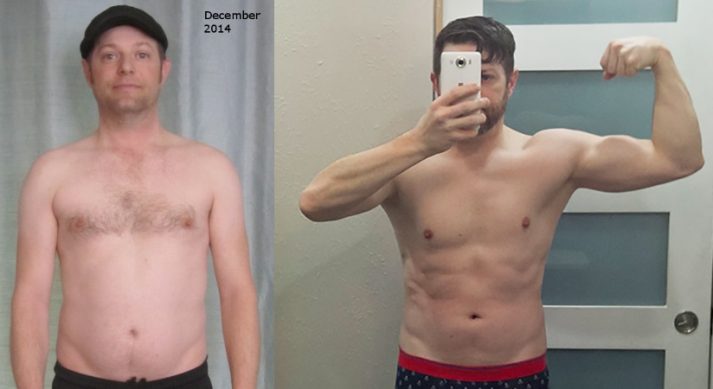
Your doctor may have given you specific recommendations regarding the types of foods you should avoid. There are still things you can do in order to keep high blood pressure at bay. First, avoid fatty foods and processed foods. A list of all your medications should be kept on hand. You'll be more likely to remember to take your medication. It is a good idea to keep a list of all your medications with you at all time so that you can quickly refer to them.
Dr. Desai advises that high blood pressure patients do as much exercise as they can. You have many options: running, swimming or using an elliptical. Salt is one of your biggest enemies when it comes to high blood pressure. Salt can increase blood volume and cause high blood pressure. Salty foods should be avoided.

A healthy diet is second. Healthy eating habits include eating lots of fruits and vegetables that are low in saturated fat, high in fiber, and high in vitamins and minerals. You can also take vitamins, minerals and whey proteins to lower your blood pressure. Reduce your intake of alcohol and sugary beverages. By avoiding these foods, you'll be able to lower your risks of high blood pressure.
Third, reduce the amount of salt or saturated fat that you consume. You should limit the amount of salt and sugar in processed foods. You should eat more fruits and vegetables. This will lower your blood pressure. You can also limit your alcohol consumption. High blood pressure patients should avoid alcohol. This is especially important if you are over 60 and have been drinking heavily for a long time.
To have a healthier heart, it is important to follow the suggestions above. Hopefully, these tips will help you maintain a healthy blood pressure and feel better about yourself. These tips will be invaluable to both you and your physician. If you can control your blood pressure, you will be able live a healthier and happier life. You'll find the perfect balance and be able enjoy your life to the fullest.

You must also limit your alcohol consumption. Drinking moderate amounts of alcohol is important to lower your risk of high bloodpressure. A standard beverage has 14 grams of alcohol. You can also try to avoid salty foods that contain too much sodium. Low-sodium diets are a great way of maintaining normal blood pressure. In addition, you should cut down on the amount of salt in your daily meal.
FAQ
Is Cardio Better Than Strength Training?
Both are equally effective. If you want to increase muscle mass faster, cardio is the better option.
Cardio burns a lot more calories per minute that strength training and is more effective at burning fat.
Strength training increases muscle mass but takes more time than cardio.
How to Build Muscles Fast
It is important to eat healthy food and lift weights frequently in order to quickly build muscle.
When you're fresh and ready to do something, early morning is the best time for working out.
Do push-ups, bench presses, squats, and other exercises.
Consider trying different weight training programs and drinking plenty of water throughout each day.
What is a good gym routine for you?
Regular exercise is key to staying healthy. It doesn't matter what type of fitness activity you choose as long as you do it regularly. Consistency is key. You must be consistent if you are to see results.
Begin by walking for a few minutes each day. You can gradually increase the amount of exercise you do until you have 30 minutes each day. You can do this running, swimming weight training, yoga or aerobics classes.
Try to get active every day. Don't miss any sessions unless you have an excuse.
When exercising outside, make sure you have the right clothing and shoes. You should also consider the weather conditions that could affect your ability exercise safely.
When you exercise, drink plenty of fluids. Avoid drinking alcohol during this time because it can cause dehydration. Avoid caffeine-rich drinks like coffee, tea, and coca. These drinks may give you energy but also dehydrate your body.
When you first start exercising, you might feel tired after completing your workouts. If you stick with your training program, you'll feel more awake and alert.
How many calories should you consume each day?
It varies from one person to another. On average, between 2000 and 2500 calories a day. Based on your age, gender, height and activity level, you will need to calculate how many calories you require.
Do I need to exercise every day?
No! Do at least 30 minutes of moderate intensity physical activity five days a week. This could be walking fast enough so you feel slightly out breath or cycling hard enough to sweat.
How does weightlifting help you lose fat more quickly?
Weight lifting is a great way to burn fat faster but you need to do it together with cardio exercise.
To maximize the benefits of weightlifting, you need to perform it after cardio workouts.
If done correctly, weightlifting can increase your heart rate and oxygen intake which in turn helps you lose weight.
It is important to combine cardio with it, as you will not see significant changes in your body's composition.
Is it possible to go to the gym every day of the week?
You can go to the gym seven times a week, but not at once. You need to find a time that you are able to do this without feeling exhausted or drained.
This will keep you motivated and provide energy for other activities.
You also need to ensure that you eat well enough during these times. This will ensure you don’t feel tired and sluggish going to the gym.
Last but not least, ensure there are no other people competing for your time. If you have children, it is a good idea to avoid going to school on the evenings as they can distract from your workout.
Statistics
- An estimated calorie range for moderately active adult males falls between 2,200 to 2,800 calories per day, depending on age. (eatright.org)
- Get free shipping and 25% off today. (healthline.com)
- By John Thompson Take a whopping 38% off a set of PowerBlock Pros. (menshealth.com)
- Candidates and applicants must pass all four tests at 70% (minimum level) to graduate from Basic Deputy U.S. Marshal (BDUSM) Training. (usmarshals.gov)
- Cardmembers earn 5% Back at Amazon.com with a Prime Credit Card. (amazon.com)
External Links
How To
How can I burn fat and exercise?
Exercise burns calories by increasing metabolism and oxygen consumption.
If you exercise with moderate intensity, you can safely lose weight.
These tips will help you burn fat and keep fit while exercising.
-
Cardio exercises include walking, running, swimming, cycling, running and jogging.
-
Three times per week, exercise for 30 minutes.
-
Strength training is a great way to lose weight.
-
Avoid intense workouts. It's possible to build muscle, but not lose it.
-
Drink plenty of water during exercise. Water is essential for flushing out toxins and keeping your body hydrated.
-
After exercising, consume low-fat protein smoothies. Protein shakes boost energy and repair muscle tissue.
-
You can eat smaller meals throughout the day so that you don't feel hungry in between meals.
-
Don't skip breakfast! Skipping breakfast can cause you to feel tired and sluggish.
-
Take care of your mental health. Stressful situations may slow down your metabolism.
-
Keep a positive attitude. Studies have shown that people who are convinced they are overweight gain more weight than those who feel they look attractive.
-
Get enough sleep. It is harder to lose fat if you don't get enough sleep.
-
Always be active. Get up every hour and get moving.
-
Maintain a healthy diet. Eating right keeps you feeling full and satisfied longer.
-
Relaxation is possible by finding ways to relax. Tenseness can cause stress hormones to break down muscle tissue.
A balanced diet will provide all nutrients that are necessary for growth.
Six small meals per day is better than three large meals. This gives your body time and energy to process the food.
Calcium is required to support strong bones. Calcium can be found as a dairy product such as milk, yogurt and fortified soy drinks, orange juices, cereals, breads, and cereals.
Calcium is found in green leafy vegetables, beans, tofu, seeds, nuts, and cheese.
Your body needs vitamin D to absorb calcium. Vitamin D can also be found in some fortified foods such as eggs, fish, and yolk.
Vitamin E is vital for your skin's health. Vitamin E can be found in vegetable oils as well as wheat germ oil, peanuts and almonds.
Your body needs zinc to maintain normal immune function and heal wounds. Zinc can be found in seafood, legumes and meats.
Zinc deficiency can cause fatigue, loss of appetite, depression, and impaired immunity.
Sugar intake can lead to insulin resistance which causes blood glucose levels to rise. Insulin resistance is linked to weight gain.
High levels of free radicals can lead to insulin resistance. Free radicals refer to molecules that contain unpaired electrons. They can damage cell membranes and other body parts.
The most common sources of free radicals include food additives.
Free radical damage can lead to cancer, heart disease, diabetes, arthritis, asthma, and aging.
Antioxidants are essential for preventing free radical damage. Antioxidants protect against oxidative damage.
Vitamin C is found in citrus fruits and beta carotene is found in carrots.
Selenium, copper and manganese are all antioxidant nutrients.
Selenium is known to protect cells from the oxidative damage that free radicals can cause. Selenium is also found in Brazil nuts.
Copper protects eyes, brain, lungs and red cells. Copper is found in shellfishes, poultry, meat, organ meats, and other foods.
Manganese is an essential component of bone structure. Manganese is found as a component of bone structure in brown rice (spinach, bananas), prunes, raisins and oatmeal.
Zinc is important for healthy growth, reproduction, and wound-healing. Zn can also be found in white fish, lean cuts of meat, poultry, and eggs.